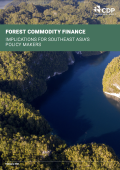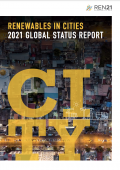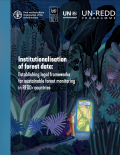This preview presents options to limit global temperature rise to 1.5°C and bring CO2 emissions closer to net zero by mid-century, offering high-level insights on technology choices, investment needs and the socio-economic contexts of achieving a sustainable, resilient and inclusive energy future.

This policy brief uses a novel approach to assess and understand the risks faced by Financial Institutions (FIs) and Forest Risk Commodity (FRC) producers from climate and land use change. The analysis highlights the most influential intervention points to minimize risks, which also contribute to decoupling forest and climate change risk from economic growth.
This report provides an assessment of the status and impacts of marine pollution in the Caribbean and provides recommendations to enhance the region’s resilience as it steers toward the Blue Economy. It highlights the major socio-economic, health, and ecological impacts of marine pollution, and provides an assessment of the main marine pollutants in the region including marine and coastal litter, untreated wastewater, and agricultural run-off.

REN21’s Renewables in Cities Global Status Report (REC) series provides an overview of the status, trends and developments of renewable energy in cities, using the most up-to-date information and data available.

In order to support developing countries in moving towards a more solid institutional setting, this paper provides a basis for understanding the importance of institutionalising an National Forest Monitoring Systems (NFMS) within each country, particularly from a legal, financial and capacity-building perspective.
